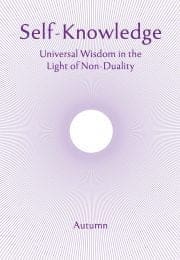The Deeper Concentration
Our mental energy, flowing through the senses, reveals to us the wonder and complexity of the outer world. We have learnt how to extend that knowledge, and have come to regard human development, at least on the material plane, as a process of continuous improvement. Boundaries are to be transcended, records broken, feats surpassed. Everything is to be upgraded, as our knowledge grows in depth and range.
But there is much more to be discovered about this vitality of the mind and its mastery of the world’s details and complexities. For these same energies of thought and feeling, when held within and concentrated in a particular way, allow the unfoldment of yet higher functions related to the deeper reality of our being. This deeper reality transcends the multiplicity of nature and is perfect even now, though this perfection is apparently veiled so long as our habit is to look away from the inner and focus on the outer. Our development depends on what we concentrate on.
To some extent our concentration is determined by self-interest. Where our wealth or welfare is concerned we usually have no difficulty in paying attention. When a cashier at a bank or bureau de change is counting the notes, the customer concentrates unwaveringly. When we are shown photographs that include ourselves, we naturally look first at our own form and may give scant attention to anyone else. When we are a student or employee, our concentration is no longer a matter of choice; our success depends on it. Yet here too self-interest is crucial; we work better if there are palpable rewards and incentives, whether these are material, or consist in the praise or approval we receive from our colleagues, supervisors or tutors. If there is no self-interest involved, our concentration will be less intense.
A higher level of concentration manifests when our self-interest is forgotten and our mind is absorbed in the task. This can apply to any kind of work, and is vividly exemplified in the world of sport. No matter how vain a sports participator may be in daily life, if he or she brings that self-regard into the game, it can be ruinous for their focus. A tennis champion was asked: ‘During those tense final rallies, often at match point, what were your thoughts?’ The reply was: ‘Had I been thinking of anything, I would have lost immediately. At such moments, you have to forget yourself totally in the play.’ A similar message is conveyed in the table-tennis haiku:
Between the ping and the pong
I thought of the score
And it all went wrong.
How can we move from the concentration that is self-regarding to the freedom of self-forgetfulness? This is one of the aims of meditation and the enquiry into the true nature of experience. The non-dual teachings make their appeal to our self, but at the deepest level. When we make such affirmations as ‘I am free’, we are pointing to that inmost centre of our being that transcends the mind and its limits. When we visualise inwardly a lotus flower or candle flame in the heart centre, our mind is probing beyond itself, with the help of symbols of something indescribable, yet ever present, at our core. And the words of our meditation texts, too, such as: ‘Light, peace and fearlessness are my nature’, are not personal enhancements but keys to the realm within us that is impersonal and infinite.
During our times of meditative reflection, our interior life brings forth its sweetest fruits. Setting aside all narrowing self-interest, and with an attitude of reverence that frees us from superfluous mental activity, our inner being will open itself to the manifestation of true wisdom—and this is the highest result of self-forgetting concentration on eternal truth.


